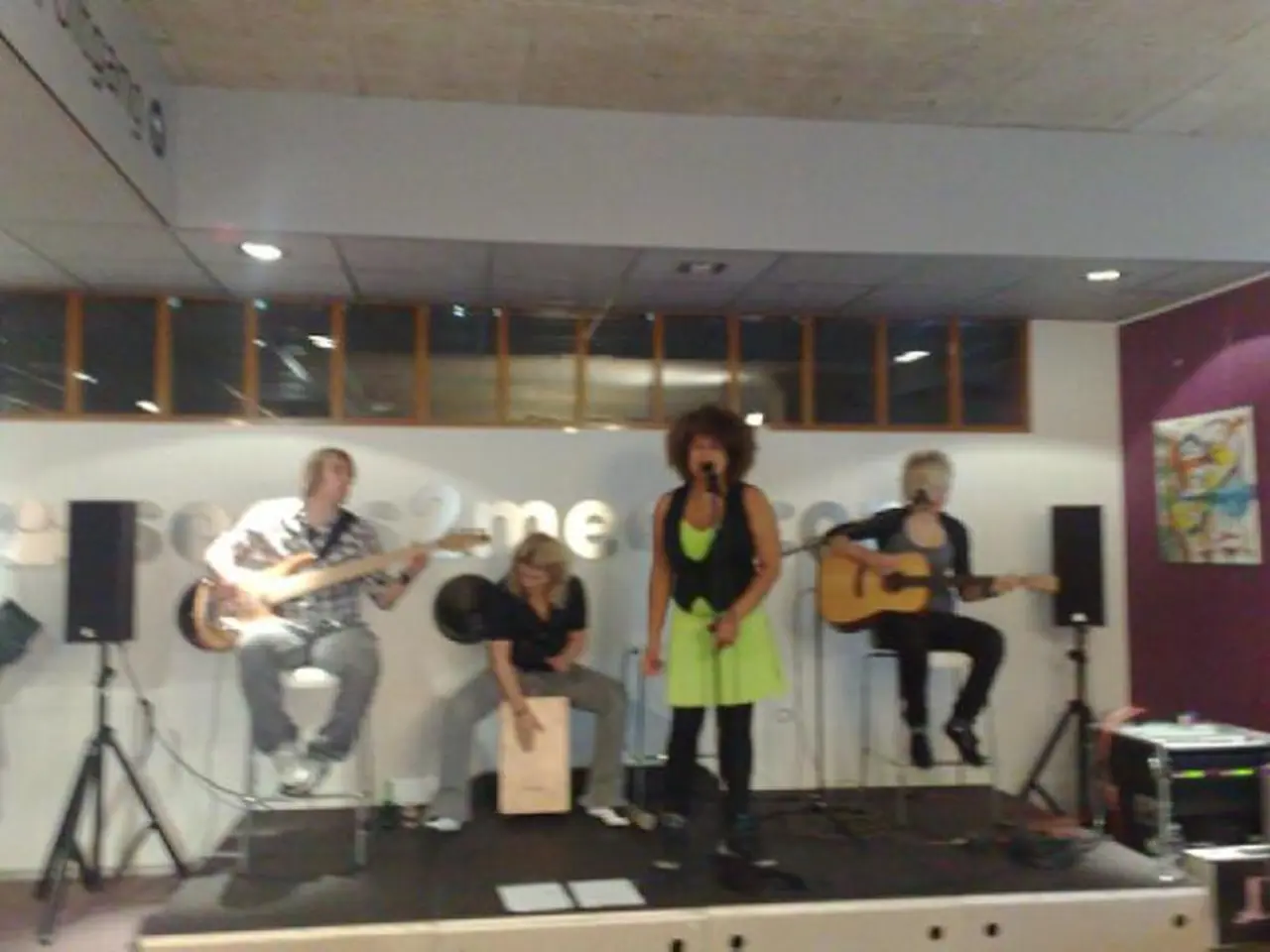Assessment: Jonathan Rauch's Analysis - 'Cross Purposes: Christianity's Frustrated Alliance with Democracy'
In a thought-provoking new book, "Cross Purposes: Christianity's Broken Bargain With Democracy" by Jonathan Rauch, the author delves into a complex and timely issue: the relationship between Christianity and liberal democracy in the United States.
The book does not mention a significant role of freethought in American history, but it does focus on the emotional experience of religion, particularly 'Sharp Christianity' or the 'Church of Fear'. This movement, according to Rauch, is 'divisive, fearful, partisan, and un-Christlike'.
The book argues that a significant proportion of Christian believers in the United States are struggling to engage productively with liberal democracy and uphold the tenets of the Constitution. This struggle is due to a vociferous brand of evangelical conservatism that is abandoning theological precepts of Christianity and spiritual teachings of Jesus in favor of right-wing hyper-partisanship.
The developments might be causing the moral and social dimensions of liberalism itself to deteriorate. For instance, discussions about church attendance in the United States often lead to political arguments primarily because religious groups, especially evangelicals, have become deeply intertwined with political parties and agendas.
This politicization is driven by evangelical Protestants' significant influence within the Republican Party, despite their declining overall population. Their increased church attendance and political mobilization contrast the broader trend of secularization, creating a complex dynamic where religion and partisan politics are closely connected.
This entanglement occurs amid legal and political changes, such as efforts to allow churches to endorse political candidates openly, which threatens the traditional separation of church and state and risks making religious institutions key players in partisan political funding. Such developments amplify tensions over religion's role in public life, especially in a liberal democracy where pluralism and freedom of belief are foundational.
Whether this politicization benefits religion in a liberal democracy is highly contested. Critics argue it risks undermining democratic norms and the religious independence that protects freedom of conscience, potentially alienating both believers and non-believers. It can encourage divisiveness and instrumentalize faith for partisan goals rather than fostering spiritual growth or social cohesion.
To address this issue constructively, both believers and non-believers can take several steps. For instance, promoting the separation of church and state, encouraging religious pluralism and dialogue, focusing on ordinary faith over partisan faith, and cultivating respectful engagement can help mitigate the adversarial nature of political debates linked to church attendance.
The book offers an effective defence and reaffirmation of liberalism against its post-liberal and Christian nationalist critics. It also provides a compelling prospectus for a creative and hopeful approach to revitalizing the seemingly dichotomous relationship between secular liberalism and Christianity.
The solution for Christianity involves the renewal of spiritual formation through a return to Christly principles, the reinvigoration of 'civic theology', and the pursuit of compromise through negotiation. The book effectively draws upon the example of the Church of Jesus Christ of Latter-day Saints to demonstrate the range of approaches that different Christian groups are taking in order to more flexibly navigate the challenges of a rapidly changing and often obstreperous religious politics.
The third season of The White Lotus features a conversation between three women about religion, which reveals that one of them, Kate, has been attending church every Sunday in Austin, Texas. Kate's friends, Jaclyn and Laurie, are surprised and concerned, realizing that Kate might be more conservative than they assumed.
In conclusion, Rauch's book offers an empathetic yet incisive assessment of the situation and proposes a way forward for Christianity to re-engage with the teachings of Jesus and uphold the democratic ideals set out in the Constitution. It serves as a call to action for both believers and non-believers to work towards a more harmonious coexistence of religion and democracy in the United States.
- The book, "Cross Purposes: Christianity's Broken Bargain With Democracy" by Jonathan Rauch, discusses the role of religion, specifically Sharp Christianity or the Church of Fear, in the relationship between Christianity and liberal democracy in the United States.
- The book suggests that a significant portion of Christian believers in the United States are experiencing difficulties engaging productively with liberal democracy, largely due to the influence of a vociferous brand of evangelical conservatism.
- This politicization of religion, led by evangelical Protestants with significant influence within the Republican Party, is causing complex dynamics where religion and partisan politics are closely connected, potentially threatening the traditional separation of church and state.
- To foster spiritual growth and social cohesion, both believers and non-believers can take steps such as promoting the separation of church and state, encouraging religious pluralism and dialogue, and focusing on ordinary faith over partisan faith.




